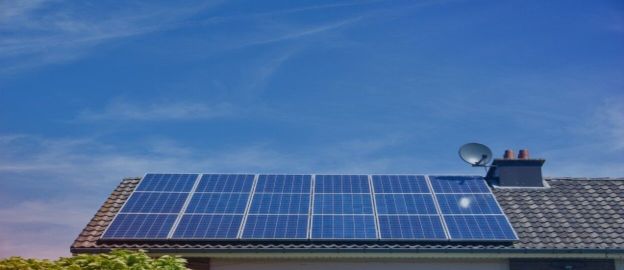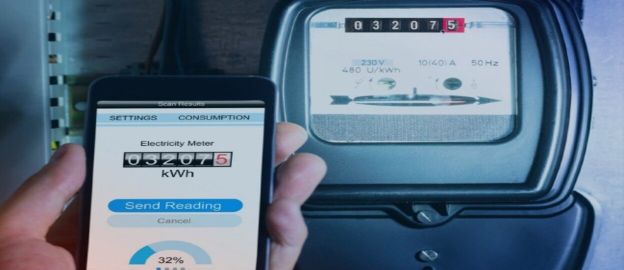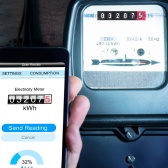Tag:
Konsument
Cutting energy bills before winter (toolbox)

The upcoming winter will be difficult for many Polish households due to high costs of heat and electricity. In the latest report by Forum Energii, more than 30 concrete measures are listed. They can be implemented easily and at a low (or even none) cost before the heating season. This will reduce bills and improve the country's energy security.
4 minutes minutes
Cutting energy bills before winter (toolbox)
The upcoming winter will be difficult for many Polish households due to high costs of heat and electricity. In the latest report by Forum Energii, more than 30 concrete measures are listed. They can be implemented easily and at a low (or even none) cost before the heating season. This will reduce bills and improve the country's energy security.
4 minutes minutes

Poland needs 2 GW of new photovoltaic capacity annually - that's why prosumers should be supported

The government is announcing changes in the support system for prosumers. The combination of the current operational support scheme (a version net-metering, called “rebates”), subsidies in the form of the “Mój Prąd” program and tax credits resulted in rapid development of solar energy in Poland. Within a few years the installed capacity in micro-installations increased from 200 MW to 3.3 GW. Security of energy supply in the summer has strengthened, CO2 emissions have been reduced and the generation mix has become more diversified to some extent. Citizens have fallen in love with renewables for good. So what’s next?
17 minutes minutes
Poland needs 2 GW of new photovoltaic capacity annually - that's why prosumers should be supported
The government is announcing changes in the support system for prosumers. The combination of the current operational support scheme (a version net-metering, called “rebates”), subsidies in the form of the “Mój Prąd” program and tax credits resulted in rapid development of solar energy in Poland. Within a few years the installed capacity in micro-installations increased from 200 MW to 3.3 GW. Security of energy supply in the summer has strengthened, CO2 emissions have been reduced and the generation mix has become more diversified to some extent. Citizens have fallen in love with renewables for good. So what’s next?
17 minutes minutes

Dynamic and just | Network tariff design for the future

It is non-elastic, inefficient, unsuited to the changing realities of the energy market and the accelerating energy transition. The Polish model of network tariffs, i.e. the system of payments for delivering electricity to consumers, must be changed. In its latest report, Forum Energii, together with the Regulatory Assistance Project, analyses the principles that need to be considered when designing a new approach to tariffs.
7 minutes minutes
Dynamic and just | Network tariff design for the future
It is non-elastic, inefficient, unsuited to the changing realities of the energy market and the accelerating energy transition. The Polish model of network tariffs, i.e. the system of payments for delivering electricity to consumers, must be changed. In its latest report, Forum Energii, together with the Regulatory Assistance Project, analyses the principles that need to be considered when designing a new approach to tariffs.
7 minutes minutes

Obligation to sell electricity on power exchange―no time for sudden moves

The Ministry of Climate and Environment have announced its plans to abolish the obligation to sell electricity on power exchange by generators, a so-called ‘obligo’. A public consultation on the proposed law is underway. The topic seems technical and niche. But the effects of the planned changes will be widespread: with the electricity market not very competitive, the abolition of the obligation will increase wholesale prices and have a negative impact on consumers―mainly industrial ones. This is a step backwards in terms of competition and transparency of the electricity market in Poland.
10 minutes minutes
Obligation to sell electricity on power exchange―no time for sudden moves
The Ministry of Climate and Environment have announced its plans to abolish the obligation to sell electricity on power exchange by generators, a so-called ‘obligo’. A public consultation on the proposed law is underway. The topic seems technical and niche. But the effects of the planned changes will be widespread: with the electricity market not very competitive, the abolition of the obligation will increase wholesale prices and have a negative impact on consumers―mainly industrial ones. This is a step backwards in terms of competition and transparency of the electricity market in Poland.
10 minutes minutes

Investment in the energy sector as a remedy for the crisis Insights

After a few weeks of the pandemic in Poland, we know for sure that the virus will infect the economy, even as we finally get rid of it ourselves. We need to act decisively right now. But we also need to think about economic recovery, in which the low-carbon transformation of energy has to take a central place. This is the time for bold decisions, so far postponed. A strategic rebuilding of the sector must be announced today to help society emerge from the crisis and provide long-term benefits.
11 minutes minutes
Investment in the energy sector as a remedy for the crisis Insights
After a few weeks of the pandemic in Poland, we know for sure that the virus will infect the economy, even as we finally get rid of it ourselves. We need to act decisively right now. But we also need to think about economic recovery, in which the low-carbon transformation of energy has to take a central place. This is the time for bold decisions, so far postponed. A strategic rebuilding of the sector must be announced today to help society emerge from the crisis and provide long-term benefits.
11 minutes minutes

From the Loire to the Vistula River | Three steps in planning the energy transition

Polish-French relations have become a bit difficult lately. When President Macron said in an interview that the Paris climate protesters should move to Warsaw because it is Poland that is blocking European climate ambitions, Poland was in turmoil. Leaving aside the emotions, it is worth looking at how the French are coping with the energy transformation. This is what the new analysis of the Forum Energii is about.
9 minutes minutes
From the Loire to the Vistula River | Three steps in planning the energy transition
Polish-French relations have become a bit difficult lately. When President Macron said in an interview that the Paris climate protesters should move to Warsaw because it is Poland that is blocking European climate ambitions, Poland was in turmoil. Leaving aside the emotions, it is worth looking at how the French are coping with the energy transformation. This is what the new analysis of the Forum Energii is about.
9 minutes minutes
